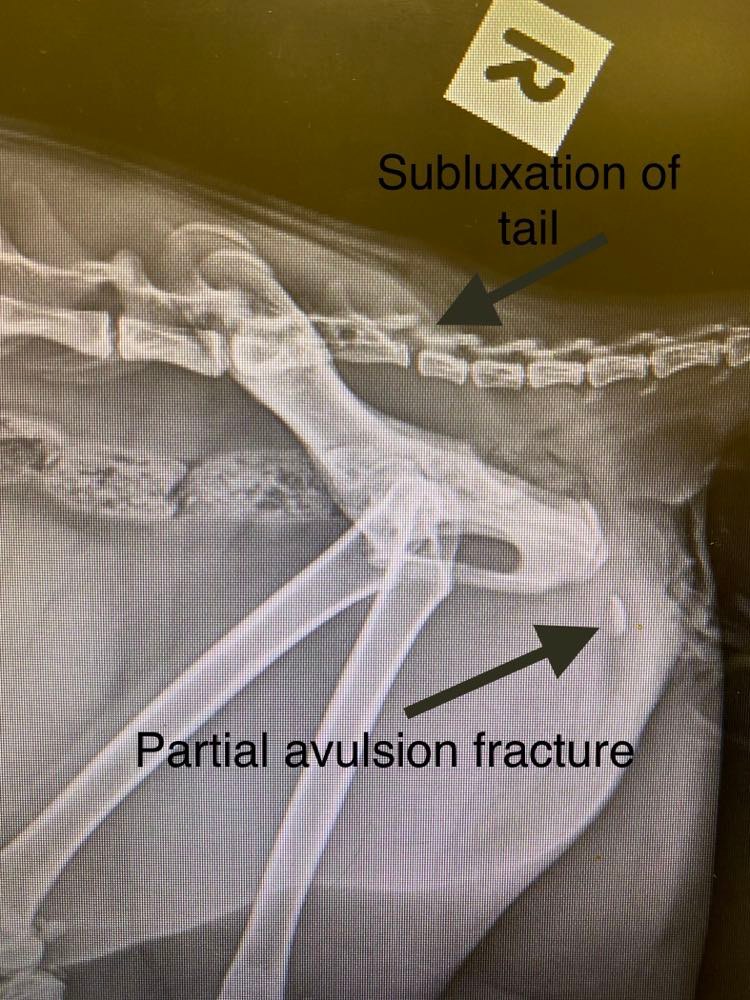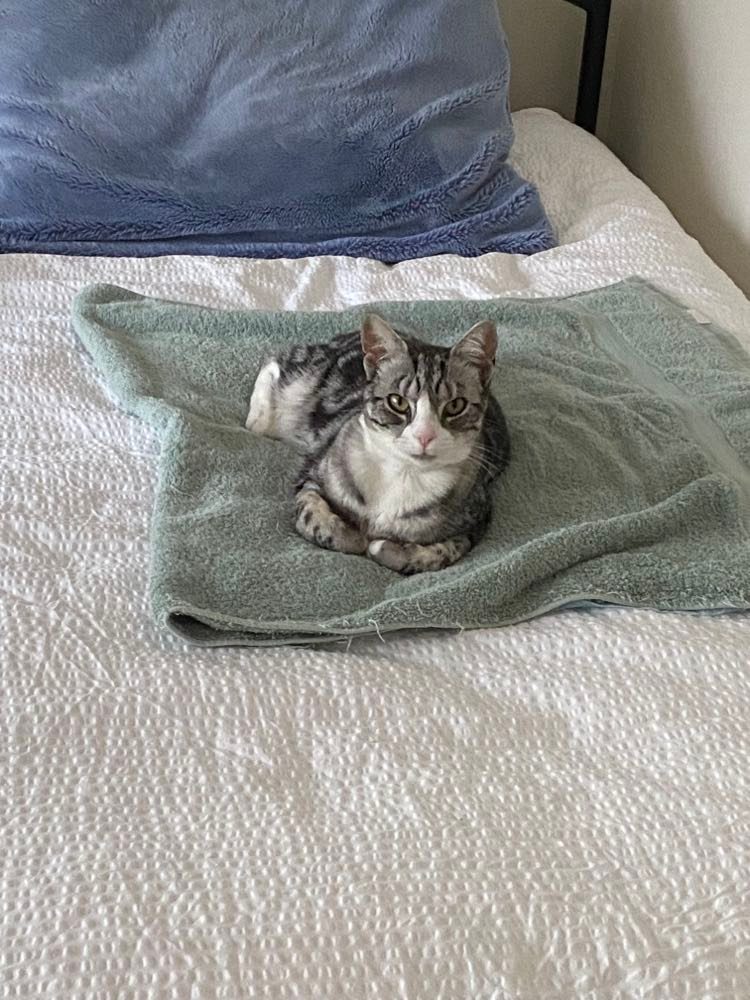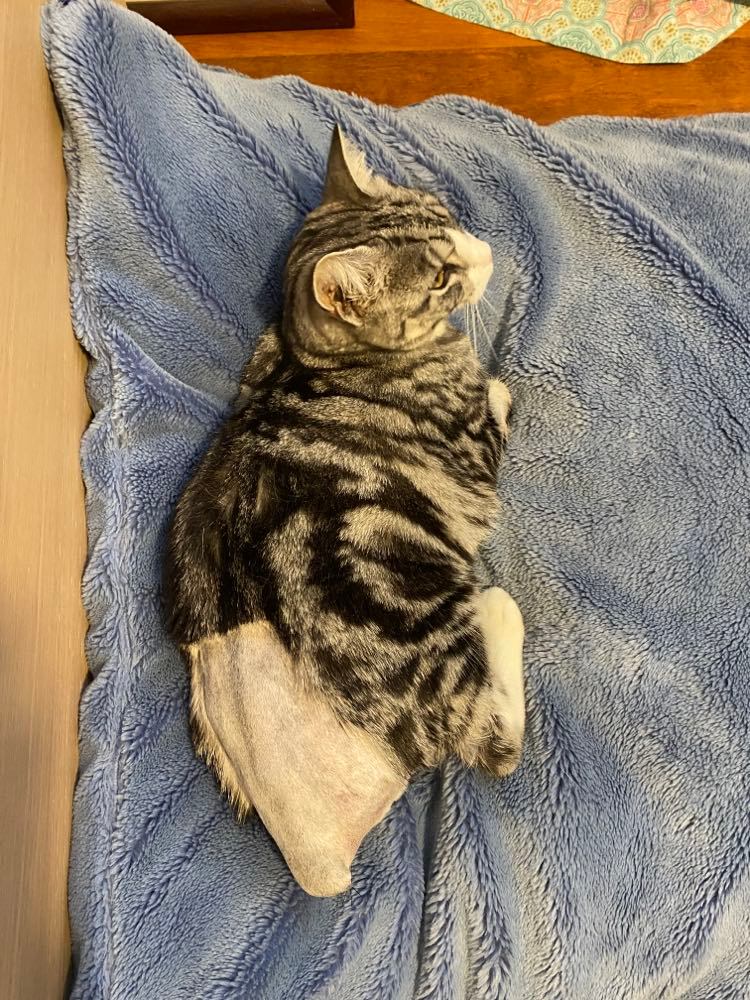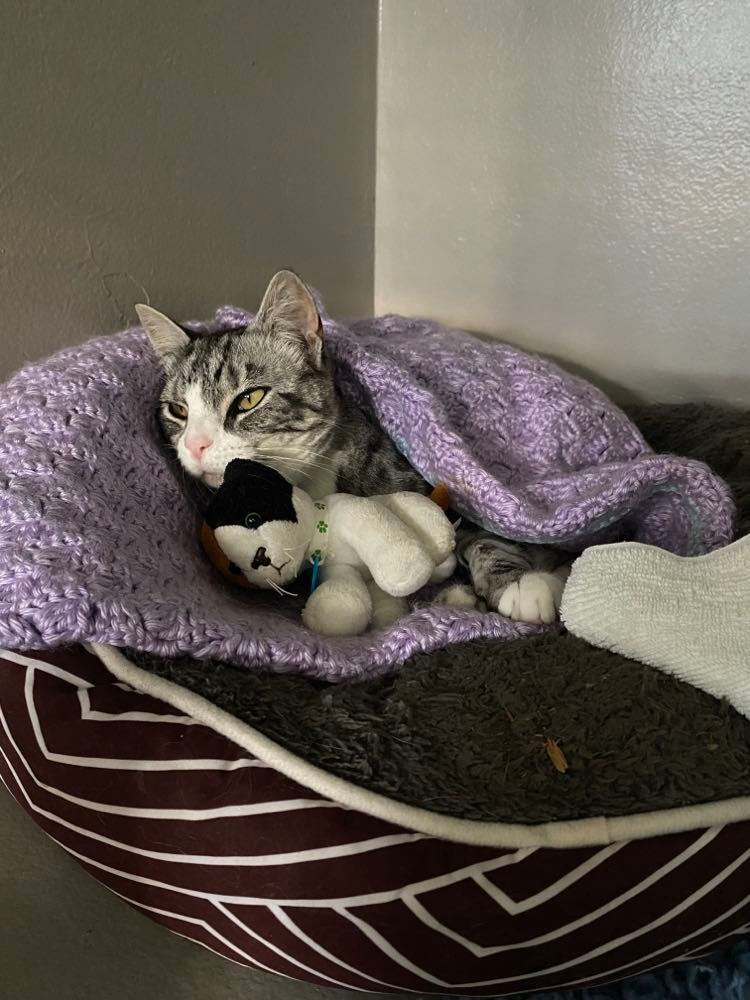Puss came into the life of her elderly owner after her husband had recently passed away, Puss was a loyal companion to her, bringing her joy after such sadness. Unfortunately, a year later, Puss came to the clinic with her distraught owner, who suspected she had been hit by a car. After examination by Dr Karina Segovia, Puss was sedated, and x-rays were taken. The radiologist found a pelvic fragment and a subluxation (partial dislocation) of the tail head (see photo below) and reported that nerve damage was likely.

While tail pull injuries don’t usually damage the spinal cord, they can cause catastrophic nerve damage. These nerves control the hindlegs, bladder, parts of the large intestine, anus and of course, the tail. Cats that can’t empty their bladders face several issues, including a higher risk of infection and overstretching the delicate bladder muscles. Manually emptying the bladder is required in these cases. In the best scenario, nerves can heal very slowly, and cats with tail pull injuries require up to 6 months to recover.
Puss needed her tail amputated as she was not expected to regain movement or sensation. Amputating the tail prevents it from being soiled during urination and defecation, causing secondary skin infections. She would need three months of rehabilitation, medication to strengthen her bladder and to have her bladder manually emptied multiple times a day if she was to have a chance at recovery. Of course, all of this comes at a cost.
Puss’s condition and prognosis and her owner’s personal situation meant that her owner successfully accessed financial assistance through the benevolent Animals in Need Fund at the University of Sydney Teaching Hospital Camden.
A few days after her tail amputation, under Dr Karina Segovia’s supervision, Puss was discharged with a staff member who provided rehabilitation support voluntarily in their own home as Puss’s owner was unable to provide this level of care.
Over the weeks to come, and with careful management, Puss began her recovery. She became increasingly playful and began using her kitty litter. But it wasn’t clear if she was emptying her bladder voluntarily (which would indicate bladder function and control returning) or if she was incontinent. After three weeks, it became clear that Puss was still incontinent, but the accidents were very manageable.
Puss was returned to her owner to see if she could manage the reduced medication regimen and the occasional bladder overflow.
Happily, we can report that Puss is doing very well at home, and her owner is over the moon to have her company again while she does her gardening.
We could only help Puss and her owner by generous donations to the Animals in Need Fund. The fund allows Uni Vets Camden to treat animals whose owners cannot afford to pay for their care. All gifts, great and small, are appreciated and make a difference; you can donate by visiting this link here https://secureau.imodules.com/s/965/18form/form-bar.aspx?appealcode=225183&bledit=1&dids=359&gid=1&key=animals&pgid=1763&sid=965




